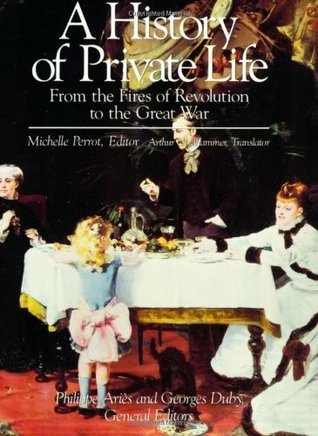This title is currently out of stock. Leave us your email address, we’d let you know when it’s in stock again!
-

A note on book covers: while we do our best to ensure the accuracy of cover images, ISBNs may at times be reused for different editions of the same title which may hence appear as a different cover.
From The Fires Of Revolution To The Great War
From The Fires Of Revolution To The Great War
Couldn't load pickup availability
Guided by six eminent historians, we move from the Enlightenment of the eighteenth century, which conceived of man as a noble creature of reason, into nineteenth-century Romanticism with its affirmation of distinctively individual creatures in all their mystery and impulsiveness, exalting intuition as a mode of knowledge. More and more, men and women wanted to sleep alone, to be left alone to read and write, to dress as they pleased, to eat or drink anything they liked, to consort with and love whomever they fancied. Growing democracies advanced those wishes to the status of rights, expanding markets stimulated them, and migration encouraged them. That new frontier, the city, simultaneously weakened family and community constraints, spurred personal ambitions, and attenuated traditional beliefs.
The authors dramatize the nineteenth century’s organized effort to stabilize the boundary between public and private by mooring it to the family, with the father as sovereign. Such chapters as “The Sweet Delights of Home,” “The Family Triumphant,” and “Private Spaces” describe the new domestic ideal of the private dwelling as a refuge from perils and temptations in the public arena, the father as benevolent despot, the wife as contented practitioner of domestic arts, the children as small versions of adults, equipping themselves to follow in their parents’ righteous footsteps. Particularly in England, the middle class was central to the formation of this homely standard, which spread to the working classes through evangelical preaching, utilitarian writings, and economic changes and improvements that resulted in a separation of home and workplace. At the same time, the gentry was transforming castles into country houses, knights into foxhunters, and landowners into gentleman farmers. The domesticating process also expressed itself in hygienic practices (soap, waterclosets, bathtubs), fashions in clothing, and vogues in sports, courtship, and lovemaking.
From the time of the French Revolution, when private or special interests were looked upon as shadowy influences likely to foster conspiracy and treason, through the rapid transformations of the nineteenth century, the authors reveal the more radical forms of modernity that arrived with the twentieth century, with its explosions of trade and technology. Besides the external development of goods and conveniences, the expanses of the psyche were also being reorganized, bringing a new openness about sexuality liberated from procreation and marriage. Feminism, a relatively sporadic movement in the nineteenth century, became a more persistent force, while young people and the avant-garde continued to break the rules and push for change as an end in itself. As always, law lagged behind in practice, more and more people rebelled against communal and family discipline. The declaration of war in 1917 put a hold on some of the flowering of individuality, but the unstoppable trend toward personality nurtured by private life was only temporarily curbed.
Details of Book
A note on book covers: while we do our best to ensure the accuracy of cover images, ISBNs may at times be reused for different editions of the same title which may hence appear as a different cover.

-
One Line Summary
Explores private life evolution from Revolution to WWI.
-
Who is this book for?
If you're interested in understanding how personal and social identities evolved during a key period of change, this book offers a fascinating look. It vividly captures the shifting ideas about family, privacy, and individual rights as societies transformed, making it a compelling read for history enthusiasts and those curious about personal freedoms.

